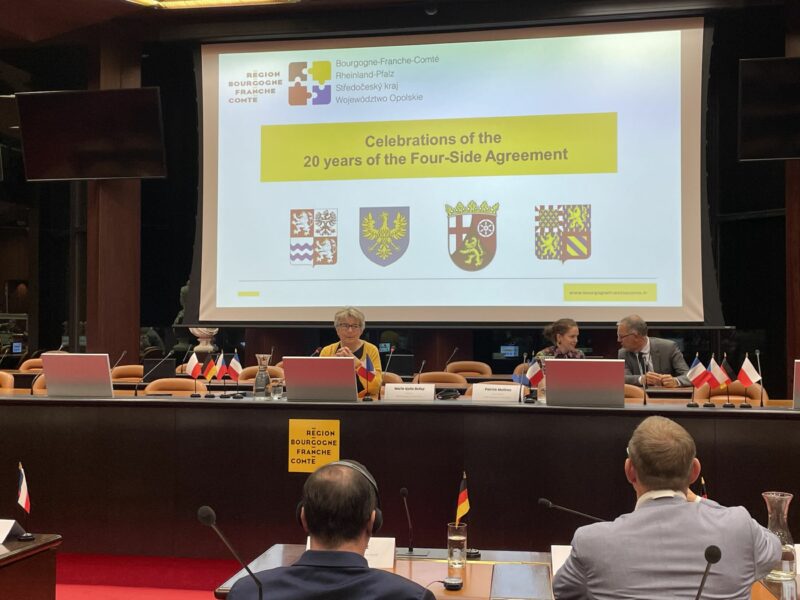Celebration of the Quadripartite Agreement between the Bourgogne-Franche-Comté Region, the Land of Rhineland-Palatinate, the Central Bohemia Region and the Opolskie Voivodship
The Bourgogne-Franche-Comté Region and AER BFC celebrated the 20th anniversary of the Quadripartite Convention, a historic agreement established between the Bourgogne-Franche-Comté Region, the Rhineland-Palatinate State, the Central Bohemian Region, and the Opole Voivodeship. This event marks a significant milestone in strengthening the social, economic, and cultural ties among these European regions.
Celebration and European Collaboration
This event provided an opportunity for Nicolas Grenier, Coordinator of National and International Prospection at AER BFC, to join Marie-Guite Dufay, President of the Bourgogne-Franche-Comté Region, and Patrick Molinoz, Vice-President responsible for digital transitions, innovation, European policies, international actions, and exports. Together, they welcomed official delegations from the Central Bohemian Region (Czech Republic), Opole Voivodeship (Poland), and Rhineland-Palatinate State (Germany). At the heart of this celebration lies the chance for partner regions to review their past accomplishments and outline directions for their future cooperation. Local stakeholders and participants from Bourgogne-Franche-Comté engaged in the Quadripartite Convention also took part in these enriching discussions. These exchanges laid the groundwork for promising future collaborations in various domains.
Ephemeral Artwork and Cultural Heritage
In addition to strategic discussions, the celebration included the inauguration of an impressive ephemeral “land art” piece created by 12 young volunteers from the four regions. This project, done in collaboration with the Rempart Federation, reflects the artistic and cultural commitment of the younger generations within the framework of this international cooperation.
Historical Background of the Quadripartite Convention
The Quadripartite Convention, signed on May 21, 2003, stems from historical bilateral relations among these European regions. Its aim was to create a dynamic European network, fostering social, economic, administrative, scientific, and cultural ties. This document laid the foundation for enduring collaboration and strengthened connections among citizens, businesses, and competent institutions of the four involved regions. This celebration not only marks a significant milestone in the history of these regions but also underscores the ongoing importance of European cooperation in building a prosperous common future.

